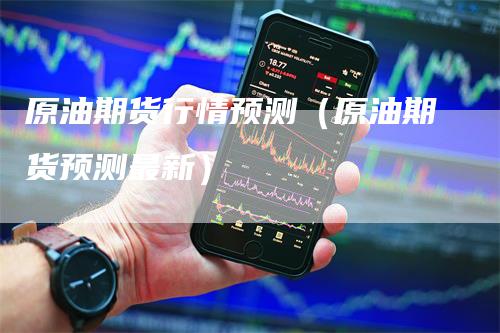
1. What is crude oil futures trading?
Crude oil futures trading refers to the buying and selling of contracts for the delivery of crude oil at a specific price and date in the future. It allows investors to speculate on the price of oil without physically owning the commodity. This type of trading is done on exchanges and provides an opportunity for both hedging and speculation.
2. Why is crude oil futures trading important?
Crude oil is one of the most actively traded commodities in the world, and its price fluctuations have a significant impact on the global economy. Futures trading allows market participants, including producers, consumers, and investors, to manage their price risks and make informed decisions based on anticipated market trends. It also provides liquidity to the market and ensures the efficient functioning of the oil industry.
3. What factors influence crude oil futures prices?
The price of crude oil futures is influenced by a variety of factors, including:
- Supply and demand dynamics: If the global oil supply exceeds demand, prices tend to decrease, and vice versa.
- Geopolitical events: Political tensions and conflicts in oil-producing regions can disrupt supply and impact prices.
- Economic indicators: Factors such as GDP growth, inflation, and interest rates can also affect oil prices.
- Weather conditions: Severe weather events can disrupt production and transportation, leading to price fluctuations.
4. How can one predict crude oil futures prices?
Predicting crude oil futures prices is a challenging task as it involves analyzing multiple complex variables. However, there are several methods and tools that traders and analysts use to make informed predictions:
- Technical analysis: Traders analyze historical price patterns, trends, and indicators to forecast future price movements.
- Fundamental analysis: This approach involves evaluating factors such as supply and demand fundamentals, geopolitical events, and economic indicators to determine the intrinsic value of crude oil.
- Sentiment analysis: Traders monitor news, market sentiment, and social media trends to gauge market expectations and sentiment towards oil prices.
- Machine learning algorithms: Advanced mathematical models and algorithms are used to analyze vast amounts of data and identify patterns and correlations that may provide insights into future price movements.
5. Are crude oil futures predictions always accurate?
No, crude oil futures predictions are not always accurate. The oil market is influenced by various unpredictable factors, and unforeseen events can significantly impact prices. However, using a combination of different forecasting techniques and carefully monitoring market conditions can improve the accuracy of predictions. It is important to remember that trading in crude oil futures involves inherent risks, and investors should diversify their portfolios and conduct thorough research before making any trading decisions.
6. What are the potential risks in crude oil futures trading?
Crude oil futures trading is a high-risk investment activity. Some of the potential risks include:
- Price volatility: Oil prices are known for their volatility, which can lead to rapid and substantial losses for traders.
- Leverage: Trading on margin allows investors to control larger contract sizes with a small amount of capital, but it also amplifies potential losses.
- Geopolitical risks: Political events and conflicts in oil-producing regions can disrupt supply, leading to sudden and unpredictable price movements.
- Market manipulation: Manipulative practices, such as spreading false information or engaging in price manipulation, can distort the market and impact trading outcomes.
7. How can one stay informed about the latest crude oil futures predictions?
To stay informed about the latest crude oil futures predictions, traders can:
- Follow reputable financial news sources: Stay updated with trusted news sources that provide reliable information on the oil market and predictions from industry experts.
- Join online forums and communities: Participate in online communities where traders and analysts discuss and share their insights on crude oil futures trading.
- Utilize data and analysis tools: Utilize data platforms and analysis tools that provide real-time market data, advanced charts, and technical indicators that can help in making informed trading decisions.
- Attend webinars and conferences: Attend industry webinars and conferences where professionals share their knowledge and predictions on the crude oil market.
In conclusion, crude oil futures trading is a complex and highly volatile market. Predicting crude oil futures prices involves analyzing a multitude of factors and employing various forecasting techniques. While predictions may not always be accurate, traders can use different tools and stay informed to improve their chances of making successful trades in this exciting market.
